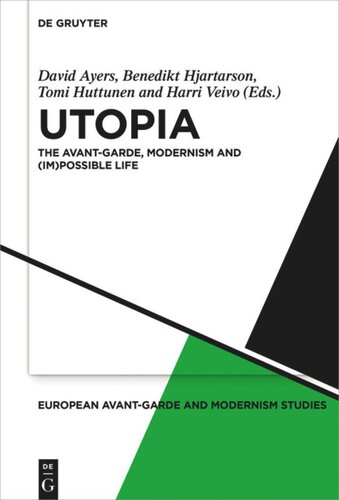

Most ebook files are in PDF format, so you can easily read them using various software such as Foxit Reader or directly on the Google Chrome browser.
Some ebook files are released by publishers in other formats such as .awz, .mobi, .epub, .fb2, etc. You may need to install specific software to read these formats on mobile/PC, such as Calibre.
Please read the tutorial at this link: https://ebookbell.com/faq
We offer FREE conversion to the popular formats you request; however, this may take some time. Therefore, right after payment, please email us, and we will try to provide the service as quickly as possible.
For some exceptional file formats or broken links (if any), please refrain from opening any disputes. Instead, email us first, and we will try to assist within a maximum of 6 hours.
EbookBell Team

4.1
10 reviewsUtopian hope and dystopian despair are characteristic features of modernism and the avant-garde. Readings of the avant-garde have frequently sought to identify utopian moments coded in its works and activities as optimistic signs of a possible future social life, or as the attempt to preserve hope against the closure of an emergent dystopian present. The fourth volume of the EAM series, European Avant-Garde and Modernism Studies, casts light on the history, theory and actuality of the utopian and dystopian strands which run through European modernism and the avant-garde from the late 19th to the 21st century.
The book’s varied and carefully selected contributions, written by experts from around 20 countries, seek to answer such questions as:
· how have modernism and the avant-garde responded to historical circumstance in mapping the form of possible futures for humanity?
· how have avant-garde and modernist works presented ideals of living as alternatives to the present?
· how have avant-gardists acted with or against the state to remodel human life or to resist the instrumental reduction of life by administration and industrialisation?